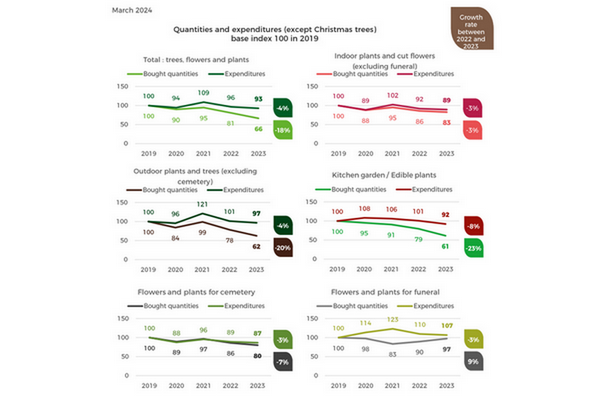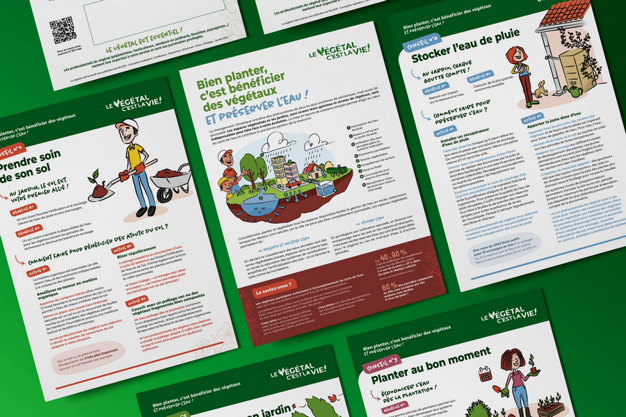''Nowadays, promoting the benefits of trees, flowers and plants is both an opportunity and a challenge," states Valhor. This French organization seeks to represent actors in the floricultural and horticultural sectors. According to Valhor, currently, inflation and environmental developments restrain flower sales in France. Yet, they believe that a communication campaign contributes to increased demand and a resilient industry.
An overview of the ornamental market in the hexagon
Valhor: "The French flower market focuses on local sales rather than exports. To illustrate, exports constitute only 6 % of growers' sales. In France, the most cultivated cut-flowers are peonies, anemones, and gerberas. Flower cultivation takes mainly place in the regions Provence-Alpes-Côte d'Azur, and Pays de la Loire.
France also produces outdoor plants. Chrysanthemums, and geraniums. These are often produced in Pays-de-la-Loire, and Grand Est. Pansies and petunia tend to be grown in Pays-de-la-Loire, and in Rhône-Alpes-Auvergne. Garden rose bushes, shrubs, and trees often originates from Pays-de-la-Loire and from Rhône-Alpes-Auvergne.
Among French consumers peonies roses, lilies, and tulips are high in demand, as well as orchids, hyacinths, poinsettia. Popular bedding plants include geranium, mandevilla, begonia, petunia, pansy, Helleborus, and dianthus. When it comes to trees and bushes, rose bushes, olive trees, lavender, hydrangeas, and heather are in the top of annual consumption."

Source: Kantar consumer survey for FranceAgriMer and Valhor
Inflation and water restrictions
The Valhor team highlights that the French floral industry is currently coping with the effects of inflation and drought, saying: "After an increase during the Covid-19 pandemic, like other countries, France has to deal with inflation. Aside from that, the industry recently had to cope with dry summers which were accompanied by water restrictions in some areas. Moreover, they need to comply and adapt to a series of government measures concerning environmental sustainability. Climate change combined with water management is a true challenge. As a result of these developments, flowers, plants, and trees may be less bought for ornamental purposes."
Turning a challenge into an opportunity
To respond to this situation, Valhor created a communication campaign that promotes the benefits of ornamentals for mental health, well-being, and sustainability. "The campaign does not only highlight these positive effects. The campaign also shares advice on how people can continue gardening and having flowers and plants despite water shortages."
Indeed, at Valhor they believe that becoming more sustainable comes along with various opportunities: "It's an opportunity to show how trees and plants can contribute to addressing various environmental challenges; urban heat island effect, water management, air pollution, CO2 management, to name just a few."

Valhor's communication campaign
A positive outlook
The organization has a positive outlook for the future of the industry: "We run various projects to increase the resilience of the industry. The communication campaign is just one example. We also launched a process for the recycling pots and containers for professional usage. In addition, we are building a new strategy or the next 6 years." In November, Valhor will celebrate its 20th anniversary.
For more information:
VALHOR
www.valhor.fr










